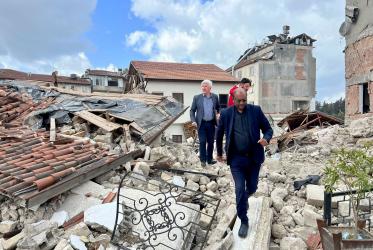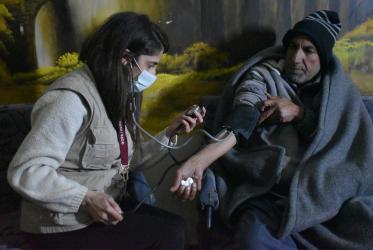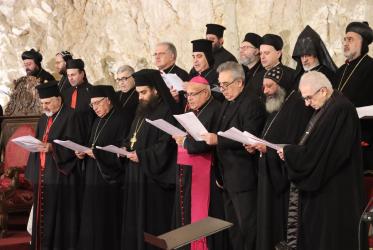Türkei
Turkey consists of a small territory in south-east Europe (Eastern Thrace), with the larger part of the country in the Middle East (Asia Minor). The Turks, who were Muslims, arrived in the area in the 11th century and gradually conquered the Byzantine empire, until the fall of Constantinople in 1453. The Turk- ish Ottoman empire at its height covered the Middle East, south-east Europe and North Africa. It lost most of its territories in the 19th century. Its end was marked by the 1915 genocide of the Armenians, who had been living in Asia Minor for centuries. The empire was dismantled after World War I. The nationalist leader Kemal Atatürk founded in 1923 the Republic of Turkey within its present boundaries. Turkey is a secular state, with Islam as the majority religion. It has applied for membership with the European Union. Negotiations began in 2005. The Christians, mainly Orthodox, who were several million at the beginning of the 20th century, are today only a small minority. The Ecumenical Patriarchate, the primary spiritual leader of the Eastern Orthodox churches, has its see in Istanbul. The Armenians and the Syrian Orthodox, who used to live in the east and southeast of Turkey, are now mostly concentrated in Istanbul, or have emigrated. Most of the Protestants are expatriates. There are some Turkish Evangelical churches, and Koreans are doing mission in Antakya, the former Antioch. Although religious freedom is guaranteed by the constitution, the churches experience restrictions. The theological faculty of the Ecumenical Patriarchate, on the island of Halki, has been closed by the authorities since 1971.





